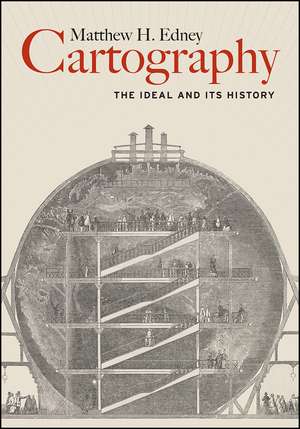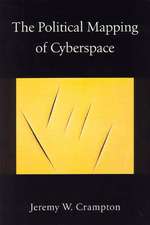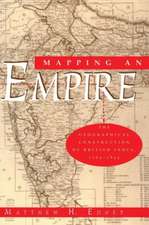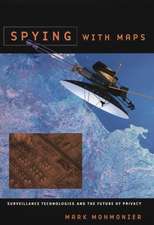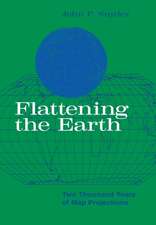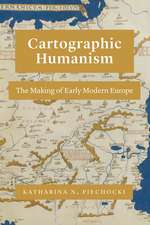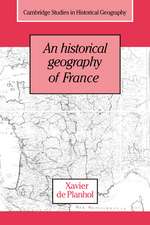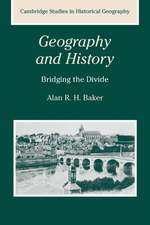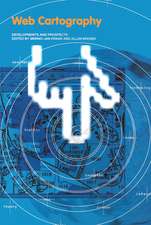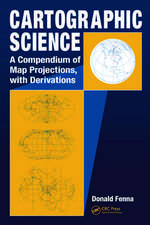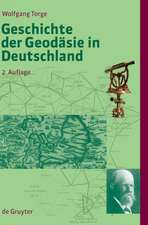Cartography: The Ideal and Its History
Autor Matthew H. Edneyen Limba Engleză Paperback – 12 apr 2019
Over the past four decades, the volumes published in the landmark History of Cartography series have both chronicled and encouraged scholarship about maps and mapping practices across time and space. As the current director of the project that has produced these volumes, Matthew H. Edney has a unique vantage point for understanding what “cartography” has come to mean and include.
In this book Edney disavows the term cartography, rejecting the notion that maps represent an undifferentiated category of objects for study. Rather than treating maps as a single, unified group, he argues, scholars need to take a processual approach that examines specific types of maps—sea charts versus thematic maps, for example—in the context of the unique circumstances of their production, circulation, and consumption. To illuminate this bold argument, Edney chronicles precisely how the ideal of cartography that has developed in the West since 1800 has gone astray. By exposing the flaws in this ideal, his book challenges everyone who studies maps and mapping practices to reexamine their approach to the topic. The study of cartography will never be the same.
In this book Edney disavows the term cartography, rejecting the notion that maps represent an undifferentiated category of objects for study. Rather than treating maps as a single, unified group, he argues, scholars need to take a processual approach that examines specific types of maps—sea charts versus thematic maps, for example—in the context of the unique circumstances of their production, circulation, and consumption. To illuminate this bold argument, Edney chronicles precisely how the ideal of cartography that has developed in the West since 1800 has gone astray. By exposing the flaws in this ideal, his book challenges everyone who studies maps and mapping practices to reexamine their approach to the topic. The study of cartography will never be the same.
Preț: 203.61 lei
Nou
Puncte Express: 305
Preț estimativ în valută:
38.96€ • 40.79$ • 32.24£
38.96€ • 40.79$ • 32.24£
Carte disponibilă
Livrare economică 15-29 martie
Livrare express 04-08 martie pentru 37.88 lei
Preluare comenzi: 021 569.72.76
Specificații
ISBN-13: 9780226605685
ISBN-10: 022660568X
Pagini: 296
Ilustrații: 65 halftones
Dimensiuni: 178 x 254 x 23 mm
Greutate: 0.73 kg
Ediția:First Edition
Editura: University of Chicago Press
Colecția University of Chicago Press
ISBN-10: 022660568X
Pagini: 296
Ilustrații: 65 halftones
Dimensiuni: 178 x 254 x 23 mm
Greutate: 0.73 kg
Ediția:First Edition
Editura: University of Chicago Press
Colecția University of Chicago Press
Notă biografică
Matthew H. Edney is the Osher Professor in the History of Cartography at the University of Southern Maine. He directs the History of Cartography Project at the University of Wisconsin–Madison, for which he has coedited Volume 4, Cartography in the European Enlightenment. He is a contributor to many books and author of Mapping anEmpire: The Geographical Construction of British India, 1765–1843, also published by the University of Chicago Press.
Cuprins
Acknowledgments
Conventions Used in This Book
Conventions Used in This Book
1 Introducing the Ideal of Cartography
2 Seeing, and Seeing Past, the Ideal
Satire, Critique, and a Persistent Ideal
Breaking Free of the Ideal
Breaking Free of the Ideal
3 Cartography’s Idealized Preconceptions
Ontology
Pictorialness
Individuality
Materiality
Observation
Efficacy
Discipline
Publicity
Morality
A Singular and Universal Endeavor
Pictorialness
Individuality
Materiality
Observation
Efficacy
Discipline
Publicity
Morality
A Singular and Universal Endeavor
4 The Ideal of Cartography Emerges
Systematic Mapping
Mathematics and Rationality, Empires and States
Seeing the World
New Mapping Professions
Mass Mapping Literacy
Forging the Web
Mathematics and Rationality, Empires and States
Seeing the World
New Mapping Professions
Mass Mapping Literacy
Forging the Web
5 Map Scale and Cartography’s Idealized Geometry
Technical Points concerning the Numerical Ratio
The Geometries of Western Mapping
Projective Geometry, Numerical Ratios, and Map Scale
Numerical Ratios and Map Scale in the Twentieth Century
Map Resolution, Not Map Scale
The Geometries of Western Mapping
Projective Geometry, Numerical Ratios, and Map Scale
Numerical Ratios and Map Scale in the Twentieth Century
Map Resolution, Not Map Scale
6 Not Cartography, But Mapping
Bibliography
Index
Recenzii
"[An] intellectually bracing and marvellously provocative account of how the mythical ideal of cartography developed over time and, in the process, distorted our understanding of maps. . . . He has convincingly overturned the presumptions of an entire discipline and those who both practise and study it. . . . Edney will undoubtedly remain at the heart of navigating our way through the seductive, perplexing and endlessly changing landscape of maps."
“What is at stake is addressed in the short final chapter. The ideal of cartography is a sleight of hand because it conceives maps as crystallized depictions of the world that can be read back by map users and therefore diverts attention from the processes of their production, circulation and effects. Edney has written a powerful book, often laced with humour and gnomic chapter headings (my favourite is ‘cartography is a map of mapping’). Edney has done a great job of bringing his arguments to a wider audience, and it will be interesting to see where he goes next.”
“Edney’s Cartography provides a corrective, a reimagined intellectual framework for maps and mapping that will, when engaged and operationalized, greatly broaden our understanding of the wondrous array of inscriptions and practices we call maps and mapping.”
"This examination of mapmaking ideals versus their practices distinguishes normative historical approaches from sociocultural critiques in anglophone, German and French literatures. Edney unpacks the images and projections of space and time that have been kneaded into an integral tradition of practices and materials. . . . this is a critical contribution to the mapping of transdisciplinary and transnational histories and philosophies of science."
“Cartography concisely and clearly captures not just the main strands of Edney’s own work over the last several decades, but also the major questions facing map historians today. Filled with original and exciting scholarship, this book will be equally important for specialists in map history and for those geographers, humanists, and mapmakers who want a rigorous discussion of how to understand and analyze maps.”
“Edney commands a breathtaking view of the history of map making. From his years of spadework in archives and classrooms to his perch at the helm of the massive History of Cartography project, he has gradually come to see fundamental problems in the very categories through which the cartographic enterprise is conventionally understood. Cartography: The Ideal and Its History offers both a sharp critique of current practice and a call to reorient the field of map studies. A landmark contribution.”
“For two decades Edney has produced thoughtful and penetrating scholarship. In his most ambitious work to date, he questions the very concept of ‘cartography’ to argue that this flawed ideal has hobbled the study of maps. With direct and tenacious prose, Edney has written an essential work that challenges us to grapple with the fundamental assumptions that undergird the field.”
"Without doubt, Matthew H. Edney can be considered one of the most influential and productive map historians of the present."
"In light of the numerous attacks on cartography, Edney’s Cartography: The Ideal and Its History may perhaps be the nail in the coffin of cartography as we now know it. . . .Simply put, all those interested in the future of the map, of map studies, and cartography should purchase a copy of this book, read it intently and with an open mind, and take its ideas seriously."
